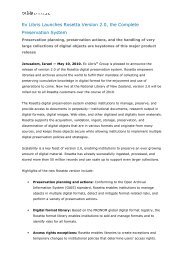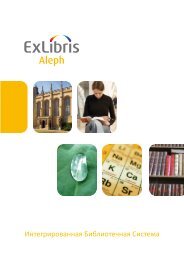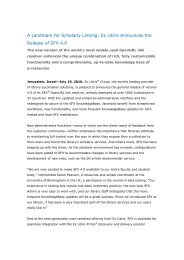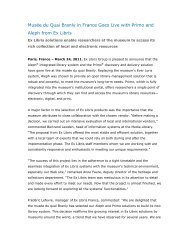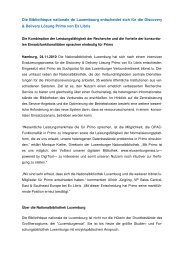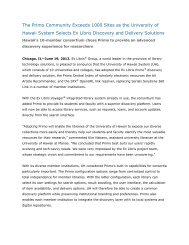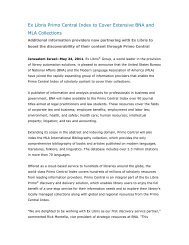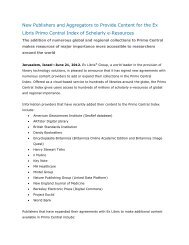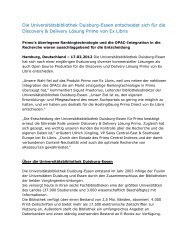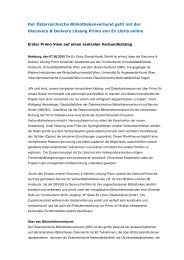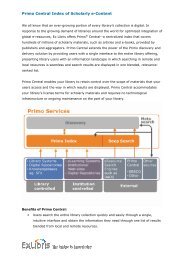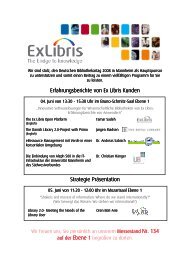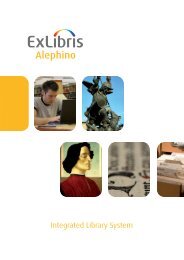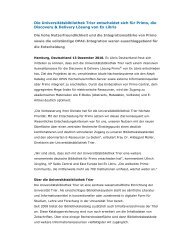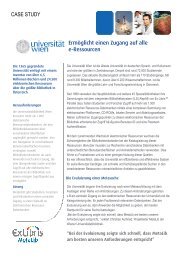Unified Resource Management FAQ - Ex Libris
Unified Resource Management FAQ - Ex Libris
Unified Resource Management FAQ - Ex Libris
Create successful ePaper yourself
Turn your PDF publications into a flip-book with our unique Google optimized e-Paper software.
metadata and resources with partner libraries. In this new network environment, libraries<br />
will be able to join forces to leverage technical support, purchasing power, collections, and<br />
even staff knowledge and resources.<br />
Today’s library collections reach far beyond traditional published material including the<br />
management of such items as primary datasets and associated research output, learning<br />
objects, and institutional archives. URM will provide the tools that libraries need for<br />
working in this new environment and expanding the library’s role in managing the<br />
intellectual output of the institution.<br />
Modularity and extensibility, facilitated by a service‐oriented architecture (SOA), fully<br />
documented Web services and application programming interfaces (APIs), are keystones of<br />
the URM framework. The ensuing URM framework will be easy to customize and enhance<br />
through locally developed code extensions that can be shared within the customer<br />
community via the <strong>Ex</strong> <strong>Libris</strong> EL Commons Website, which serves as a host for collaborative<br />
efforts.<br />
How will URM differ from an integrated library system?<br />
One of the key advantages of URM—and a feature that distinguishes it from current<br />
integrated library systems—is the unification of workflows regardless of the type of material<br />
being managed or the method of its acquisition. In the foreseeable future, libraries will<br />
continue to work in a hybrid environment, managing different back‐office processes related<br />
to print, electronic, and digital assets. Bringing together the selection, acquisition,<br />
management, and distribution of the entire library collection will provide new efficiencies,<br />
reducing costs and improving the service to users.<br />
4



